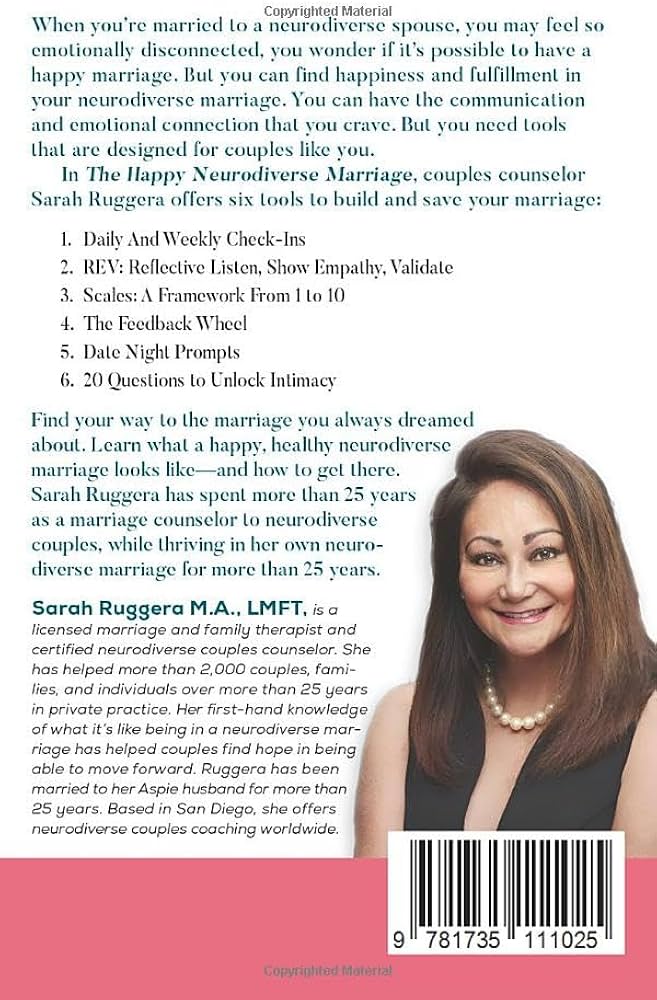Emotional Communication for Successful Marriage: Key Secrets
Strong marriages thrive on emotional communication. It creates understanding and deepens love.
Emotional communication is more than just words. It involves sharing feelings, thoughts, and needs openly. Couples who communicate emotionally build trust and intimacy. This foundation helps navigate conflicts and strengthens bonds. In today’s fast-paced world, many couples struggle with it.
They miss the signals or misunderstand each other. This leads to frustration and distance. But it doesn’t have to be this way. Learning to communicate emotionally can transform a marriage. It brings partners closer and fosters mutual respect. In this blog, we’ll explore how emotional communication works in marriage. We’ll discuss its importance and offer tips to improve it. Let’s unlock the secrets to a successful marriage through emotional connection.
The Role Of Emotions In Marriage
Emotions play a vital role in marriage. They form the core of a relationship. Understanding emotions helps partners connect deeply. Couples grow closer when they share feelings. Emotional communication builds trust and respect. It also prevents misunderstandings. Acknowledging emotions leads to a successful marriage.
Emotional Bonds And Connections
Emotional bonds create strong connections between partners. These bonds develop through shared experiences. Listening to each other strengthens these bonds. It fosters a sense of belonging and safety. Couples feel secure when they communicate openly. This security helps nurture love and intimacy. Emotional bonds are the foundation of a lasting marriage.
Impact Of Emotional Misunderstanding
Emotional misunderstandings can harm relationships. They often lead to conflicts and resentment. Misunderstandings occur when feelings are ignored. This can create distance between partners. It is crucial to address these issues promptly. Open communication can prevent emotional drift. Resolving misunderstandings strengthens the relationship. It also enhances mutual understanding and support.
Effective Emotional Expression
Effective emotional expression is crucial for a successful marriage. Partners need to share their feelings openly. This builds trust and understanding. Expressing emotions can prevent misunderstandings. It also strengthens the bond between couples.
Articulating Feelings Clearly
Clear communication of emotions is vital. Use simple words to describe your feelings. Avoid complex language that confuses your partner. Share your thoughts directly. This helps your partner understand your emotions better. Say, “I feel sad,” instead of vague statements. Be honest about your emotions. This honesty fosters a deeper connection.
Non-verbal Communication Techniques
Non-verbal cues play a big role in emotional expression. Facial expressions convey emotions without words. A smile can show happiness. A frown can indicate worry. Body language also speaks volumes. Crossing arms might show defensiveness. Open arms can signal acceptance. Eye contact shows attentiveness and interest. It helps partners feel understood and valued.
These techniques can enhance emotional communication. They add depth to verbal expressions. Paying attention to non-verbal signals can improve understanding between partners. It creates a more harmonious relationship.
Listening With Empathy
Listening with empathy is crucial for a successful marriage. It builds trust and understanding between partners. Empathy allows you to connect deeply and respond genuinely. It helps you see things from your partner’s perspective. This strengthens the bond and resolves conflicts. Let’s explore how active listening and empathetic responses enhance emotional communication.
Active Listening Skills
Active listening involves paying full attention to your partner. It means focusing on their words without distractions. Nod or make small affirmations to show understanding. Avoid interrupting while they speak. Let them finish their thoughts completely. This shows respect and encourages open dialogue. Ask clarifying questions to ensure you understand their point.
Empathy In Emotional Responses
Empathy requires feeling what your partner feels. It’s about acknowledging their emotions genuinely. Use phrases that validate their feelings. Say things like “I understand” or “That sounds hard.” This makes your partner feel heard and valued. Respond with compassion and kindness. Avoid dismissive or judgmental reactions. This keeps emotional channels open and healthy.

Credit: www.amazon.com
Resolving Conflicts Emotionally
Resolving conflicts emotionally strengthens the bond in a marriage. Couples often face challenges that test their patience. Emotional communication helps in understanding feelings, paving the way for solutions. This approach fosters connection and empathy. It encourages partners to address issues with a gentle touch, ensuring resolutions are heartfelt and lasting.
Managing Emotional Triggers
Emotional triggers can escalate arguments quickly. Identifying these triggers is essential. Recognize what ignites anger or sadness. Once identified, you can control your reactions. Stay calm and avoid reacting impulsively. This awareness helps in maintaining peace. It reduces misunderstandings and prevents unnecessary conflicts.
Breathing exercises can aid in managing emotions. Pause and take deep breaths. This calms the mind and body. It gives you time to think before speaking. A calm response often leads to better outcomes. Partners can then approach the issue with clarity.
Constructive Emotional Dialogues
Dialogue is key to resolving conflicts emotionally. Express feelings clearly and respectfully. Use “I” statements to convey emotions. This reduces blame and fosters understanding. Listening is equally important. Pay attention to your partner’s words and feelings. Show empathy and validate their emotions.
Constructive dialogues promote mutual respect. Discuss solutions together. Focus on the problem, not the person. This encourages teamwork and collaboration. It builds trust and strengthens the relationship. Partners learn to navigate challenges together. Open communication ensures conflicts are resolved peacefully.
Building Emotional Intimacy
Emotional intimacy forms the heart of a thriving marriage. It allows couples to connect deeply. This connection fosters understanding and compassion. Building emotional intimacy strengthens the bond between partners. It requires effort from both sides. Cultivating this closeness can be a rewarding journey.
Partners experience vulnerability, trust, and empathy through emotional intimacy. These elements create a solid foundation for a happy relationship. Couples can share feelings without fear. This openness brings them closer, ensuring a lasting bond.
Creating Safe Emotional Spaces
A safe emotional space is vital for sharing feelings. Partners should listen without judging. Encourage open dialogue by showing empathy. Validate each other’s emotions. This builds a secure environment. It becomes easier to express concerns and desires.
Non-verbal cues also play a role. Simple gestures like holding hands can reassure a partner. They show support and understanding. Creating such spaces requires patience. Effort from both partners is essential.
Strengthening Emotional Trust
Trust is the cornerstone of emotional intimacy. It develops through honest communication. Partners should keep promises and be reliable. This consistency fosters a sense of security.
Sharing vulnerabilities can strengthen trust. It shows confidence in each other. Being there during tough times also builds trust. Support during challenges reinforces the emotional bond. Over time, trust transforms relationships, making them resilient.

Credit: freedmarcroft.com

Credit: www.wedgatematrimony.com
Frequently Asked Questions
What Are The 7 C’s For Effective Communication?
The 7 C’s for effective communication are clarity, conciseness, concreteness, correctness, consideration, courtesy, and completeness. They ensure messages are understood, respectful, accurate, and relevant. Adhering to these principles enhances understanding, reduces misunderstandings, and fosters effective exchange of information.
What Are The Three C’s Of A Good Marriage?
The three C’s of a good marriage are communication, compromise, and commitment. Communication helps partners express feelings and resolve conflicts. Compromise involves finding solutions that satisfy both parties. Commitment ensures partners stay dedicated to each other through challenges. These elements foster a strong, lasting relationship.
What Is The Best Communication In Marriage?
The best communication in marriage involves active listening, open dialogue, and expressing feelings honestly. Prioritize empathy and understanding. Regularly discuss needs, goals, and concerns. Use “I” statements to avoid blame. Maintain respect and support for each other.
Conclusion
Strong emotional communication strengthens marriages. Couples grow closer by sharing feelings openly. Listening actively fosters understanding and trust. Honest conversations prevent misunderstandings and conflicts. Empathy helps partners connect on a deeper level. Regular check-ins keep the relationship healthy. Expressing appreciation boosts emotional bonds.
Remember, every marriage faces challenges. Communication helps navigate these hurdles together. Prioritize emotional connection for lasting happiness. Practicing these skills daily enhances marital harmony. A loving, supportive partnership awaits those who commit.




